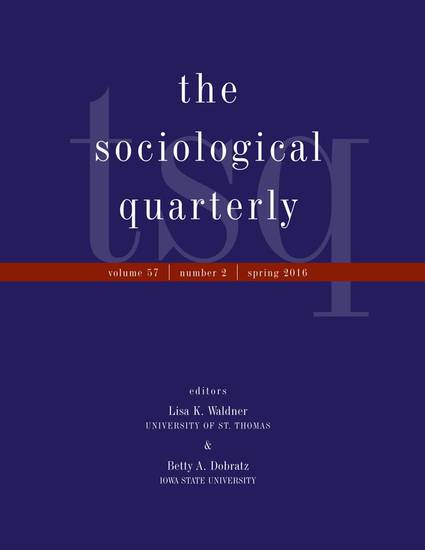
Article
Marriage and the Offending: Examining the Significance of Marriage among the Children of Immigrants
The Sociological Quarterly
(2016)
Abstract
Although research shows that involvement in crime varies across immigrant generations, less is known about why this is so. Using 13 waves of National Longitudinal Survey of Youth 1997 data, we examine the influence of marriage—a key correlate of desistance from crime—to understand more fully patterns of offending across immigrant generations during the transition to adulthood. Results indicate a lower prevalence of offending among first‐generation immigrants compared with their second‐generation and third‐plus‐generation peers; however, among active offenders, rates of offending are similar across groups. Notably, marriage exerts a significantly stronger effect on offending for second‐generation immigrants, suggesting that, while assimilation may be associated with more offending, it is also associated with a greater potency of marriage in promoting desistance from crime.
Disciplines
Publication Date
Spring 2016
DOI
doi.org/10.1111/tsq.12116
Citation Information
Stephanie Di Pietro and Bianca E. Bersani. "Marriage and the Offending: Examining the Significance of Marriage among the Children of Immigrants" The Sociological Quarterly Vol. 57 Iss. 2 (2016) p. 304 - 332 Available at: http://works.bepress.com/stephanie-dipietro/6/
